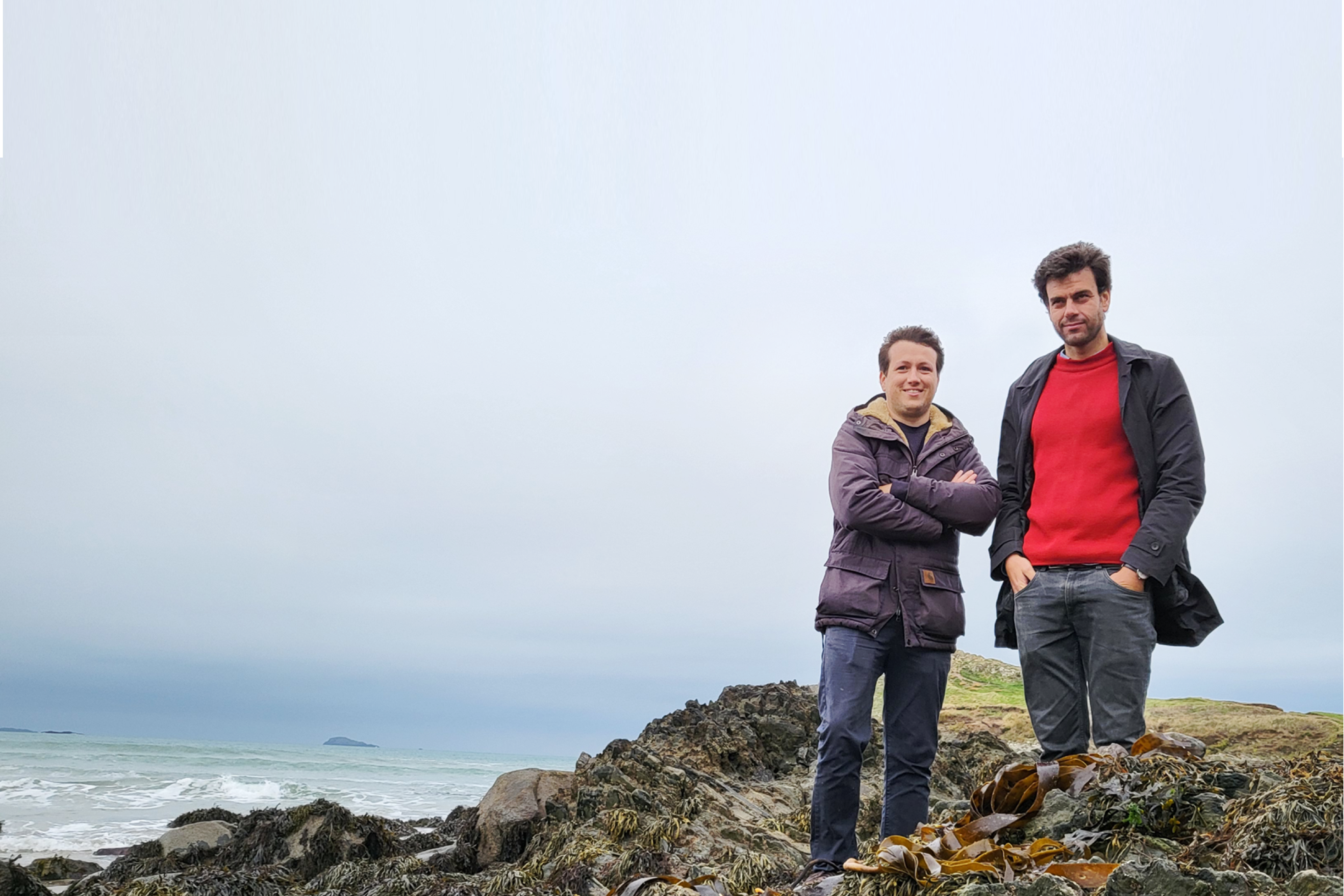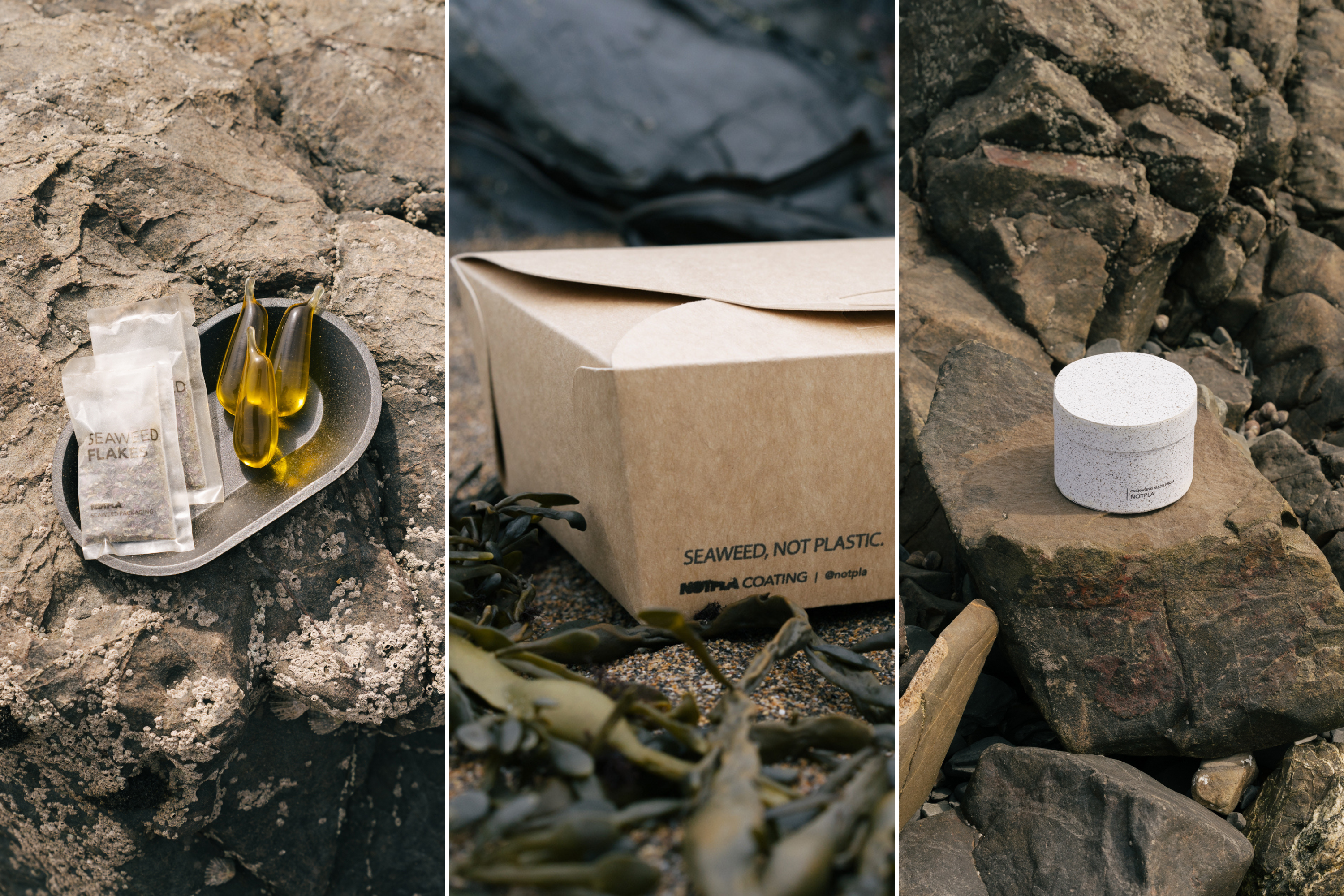Anything but plastic
Pierre Paslier (MSc Innovation Design Engineering 2014) reveals how his company, Notpla, is using seaweed to create a revolution in packaging.
Interview: Peter Taylor-Whiffen
Making biodegradable packaging out of seaweed began as our student project at Imperial – we never planned to create a business. But our videos went viral and we felt a responsibility to the planet to take it further. Now our company, Notpla, has attracted £15 million in investment, we supply several major food manufacturers and restaurants, and we’ve just won Prince William’s Earthshot Prize. All we wanted was to provide an alternative – now everyone wants to join our revolution.
The story began in 2014, when I came to Imperial for a Master’s in Innovation Design Engineering and met my Notpla co-founder, Rodrigo Garcia Gonzalez. We set ourselves the challenge of making a ‘man-made fruit’, complete with packaging that would feel like it came from nature.
The initial results were not refined – smelling of seaweed and sometimes leaky – but when we posted videos of our work, they went viral"
We were inspired by the way ‘bubbles’ of fake caviar were made by Unilever in the 1950s, and after experimenting with gum from the roots of plants, we turned to seaweed. Working out of our kitchen, we were able to create a viscous paste from the raw seaweed, which we then developed into bubbles to use for packaging. The initial results were not refined – smelling of seaweed and sometimes leaky – but when we posted videos of our work, they went viral.
At that point our Master’s was coming to an end, but we applied to a few competitions and got our first funding from what is now Undaunted, a programme from Imperial’s Grantham Institute. We got so much support from Imperial – incubating our business, training, mentoring, and then legal help when American companies tried to frighten us off by falsely claiming we’d stolen their idea.
Our product range grew. We started packaging water, then fruit liquids. As a result of our videos, Lucozade contacted us and we provided their packaging for energy gels at the 2019 London Marathon – runners could either consume the whole thing or discard the packaging to biodegrade in just six weeks. We’ve developed whisky cocktail pouches with Glenlivet and edible ketchup and mayo sachets with Kraft Heinz. Fast food boxes all have a thin plastic film on the inside so we developed an alternative seaweed coating and are now working with Just Eat on these.

And we keep developing – we’ve made a coffee stick with packaging that dissolves in boiling water, and a soluble box for Swiss watch firm, ID Genève (the box comes with ‘destruction instructions’ for the watch-owners to dissolve it in their watering can, so two hours later they can use it to water and fertilise their plants). We now have 70 staff in our premises in London but are looking to expand in mainland Europe and the US. Food packaging possibilities are exciting but there are many other opportunities in cosmetics, fashion, garments – the £1 million Earthshot Prize has opened up so many more opportunities.
It’s truly exciting to be pioneers, but we welcome competition; we can’t be the only supplier. To have real impact we need a whole ecosystem, and for the sake of the planet, we need everyone to make packaging like this.